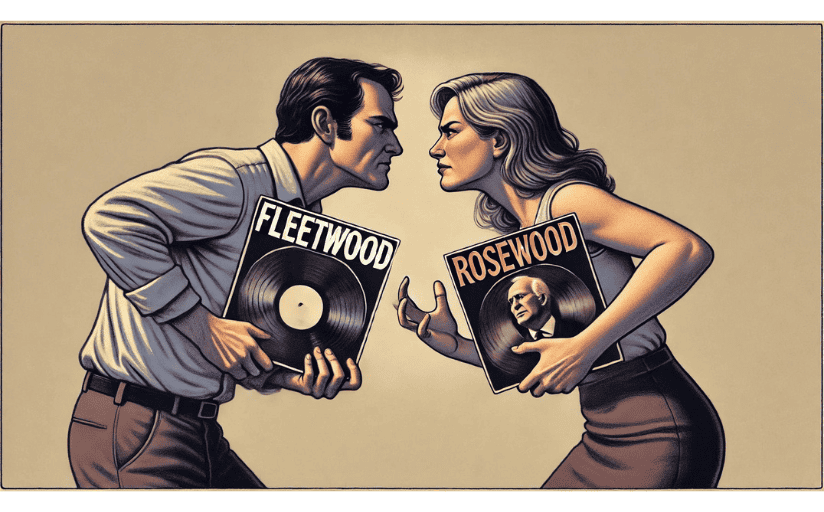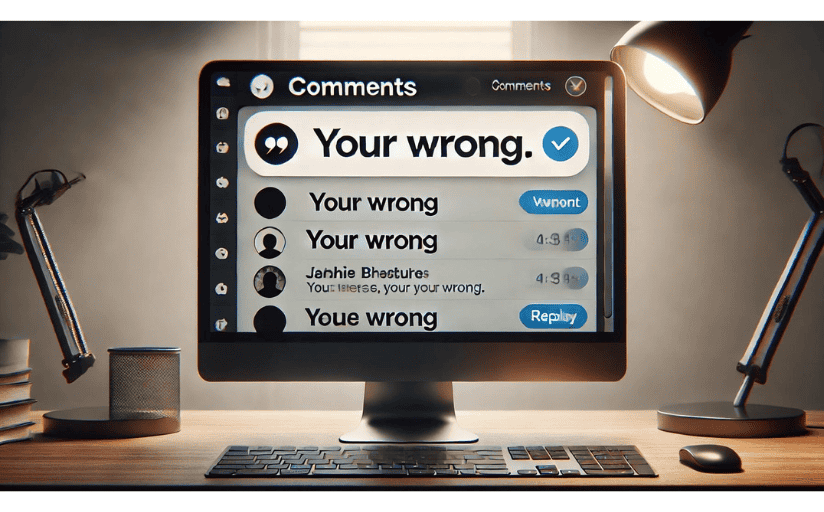There are countless reasons why it’s important to understand the nuances of your vs. you’re, but one of them stands above the rest. One of them is vital to political discourse and woven into the fabric of our shared social contract in this American century.
That’s right. I’m talking about the importance of not embarrassing yourself online by telling someone “Your wrong” or “Your dumb” when you’re arguing in an online comments section.

The Importance of Your vs. You’re
We’ve all been there. We all know that we should never, ever read the comments. Sometimes, we do, though. OK, fine. Sometimes I do. Listen, if I see someone online say that Fleetwood Mac isn’t the best band of all time, I’m going to defend the band’s honor — and I’m going to use the right form of your or you’re when I do it.
If you want to win your next message board argument, or even better, if you want to make sure your point is made in academic and business writing, it’s important to remember the difference between these two commonly confused words.
When Should You Use Your or You’re?
When considering your vs. you’re, figuring out which word you should use is a fairly straightforward process. Unlike Fight Club, there are only two rules you need to remember:
1. Your is an adjective that shows that something belongs to you.
Technically, your is the second-person possessive adjective, but you really don’t need to know that unless you want to impress people at grammar parties or scare off people at regular parties. What you do need to know is that your is all about ownership. As such, it’s always followed up with a noun or gerund:
- Listen to me, Amanda! I swear I didn’t steal your Mike Tyson bobblehead!
Here, your shows that the missing bobblehead (that’s the noun being modified) belongs to Amanda.
- Your dancing was awesome — especially that part when you pretended to sharpen a pencil.
Here’s an example of your being used to modify a gerund. The rad dancing skills belong to the person being addressed, who, based on said skills, is probably somebody’s dad.
- Your trying out for the competitive eating team made Dad and me so proud.
This is another example of your modifying a gerund. Here it’s the phrase trying out, as in the fact that you tried out for the team moved your parents so much that it’s probably going to make the family’s Christmas newsletter.

2. You’re is a contraction of you are.
Now check out these examples that use the contraction you’re. They all have one big thing in common: If you swap in you are for you’re, the sentence still makes sense. Go ahead. Try it.
- I just volunteered to take your mom to Bingo. You’re welcome.
Your welcome vs. you’re welcome has perplexed writers since the dawn of man — or at least the dawn of manners. The correct form is you’re welcome because what you’re really saying is “You are welcome,” where welcome is an adjective that describes you, who no longer has to suffer through bingo at the Moose Lodge on a Friday night.
- You’re going to Tommy’s Flag Day party, right?
As you can see in this patriotic example, you’re is often followed by an -ing verb, or gerund.
- If you think I’m going to wear that hot dog costume, you’re dreaming.
Here, you’re is the right call because the speaker is saying, “You are dreaming,” which is a nicer way of saying, “You’re a moron.” Once again, you can see that you’re is chased by a gerund.
- You’re awesome.
As in, you are awesome. No, really. You are.
Now that your self-esteem is at an all-time high, let’s talk about using your or you’re in regards to text messaging. It turns out there’s a third party when it comes to you’re vs. your, and things R about 2 get ugly.

What About Ur? Is It Ever OK?
Like it or not, the joint rise of text messaging and social media has changed the way we write. Brevity is key. Thanks becomes THX. Both your and you’re become UR, and if you’re my dad, I think you left the baby monitor’s charger in the guest room when you guys visited last weekend becomes I? U LFT BBMON’S C N GR00 LAST WKND plus the lobster emoji.
Let’s get back to UR, though. It, like all text abbreviations, is slang. In the proper context, it’s fine. You might use quick abbreviations in situations like these, for example:
- An email to your friend
- A handwritten note to your husband
- Fiction and poetry
- A hilarious tweet about sour cream
- Text messages (duh)
In more formal writing situations, however, UR is generally the wrong call. Without the proper audience, slang and other informal words can stick out like dads at a Shawn Mendes concert. At best, they distract from your message and purpose for writing. At worst, they can reflect poorly on your reputation as a person who regularly uses the English language.
Assume your audience isn’t down with slang until proven otherwise. Stick to using your and you’re, and remember: If you can plug you are into the sentence and it still makes sense, then you should probably use you’re.
Your vs. You’re: Got It?
Got any other tips for using your vs. you’re? Any strong thoughts about using UR? Sound off in the comments below — or, as my dad would say, SOFF CoMM B3LLOw$ ER!1!


Leave a Reply